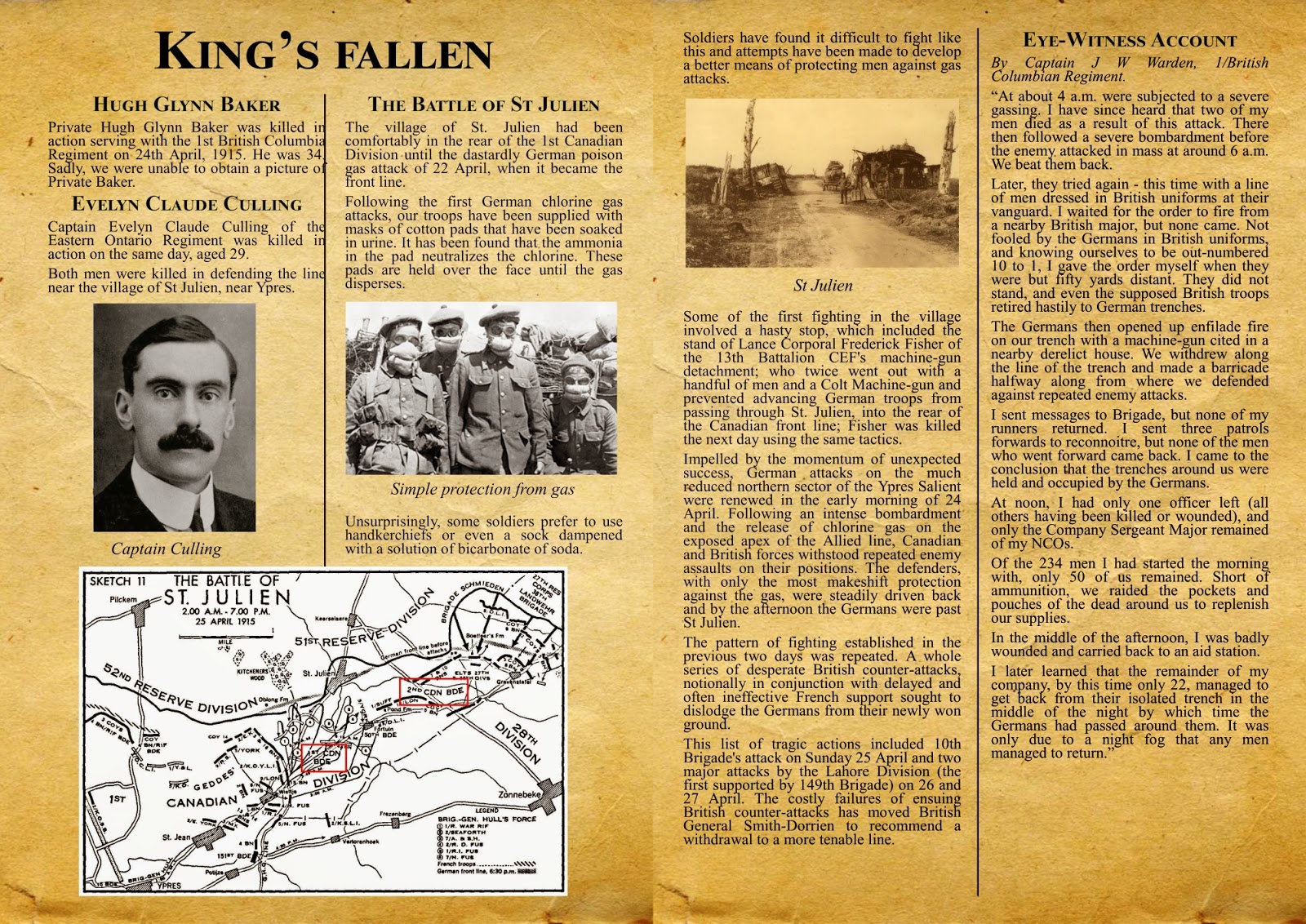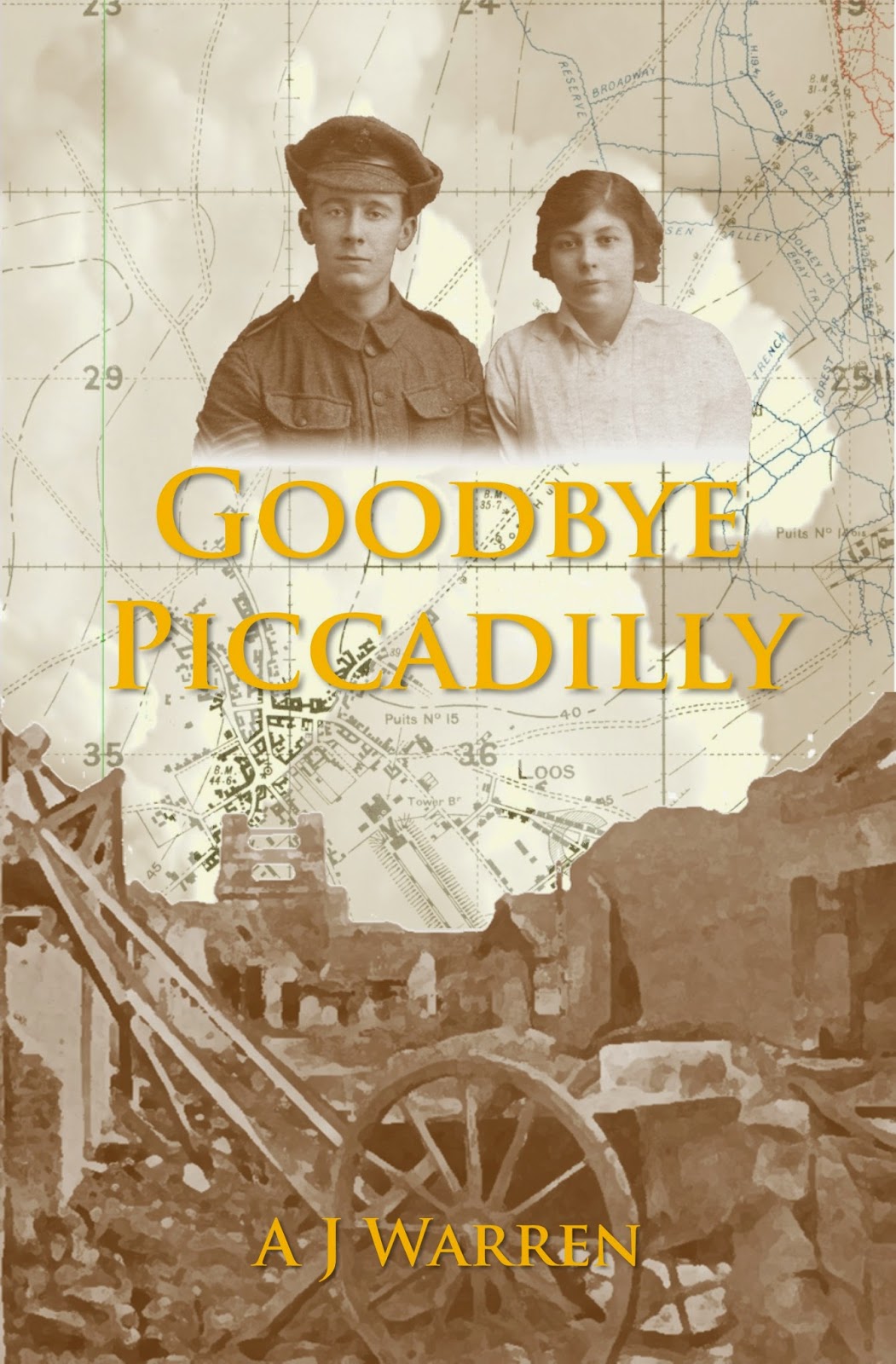Small excerpt from Goodbye, Piccadilly. Available here:
http://www.amazon.co.uk/dp/B00F1YPKKK
***
The train jolted when it crossed some points and Reg woke
with a start. It was getting dark outside, he noticed. Most of the lads were
either sleeping, or sitting up playing cards or just smoking. Stevens sat by
himself in a corner reading. The train began to slow, and Reg assumed they must
be arriving at their destination. He stood and walked over to the door. Leaning
out, he looked up the track. The train was rounding a gentle bend, and up ahead
Reg could see a station and parked alongside, a familiar sight. ‘Bloody hell,’ he
said.
‘What?’ said Jimmy. He dropped an unpromising hand of
cards, stood up and moved to the door, staggering as the train stopped.
‘Have a look.’ Reg stepped aside and Jimmy leaned out.
There must have been around forty London buses parked at the station; there was
something very comforting about the sight of them.
‘Looks like we’re getting a lift to the front, lads,’ said
Jimmy, mightily relieved he wouldn’t have to march in his new boots. Caldwell
appeared out of the gloom as the train stood steaming in the station yard. ‘Kendrick.
Let’s have the men down and lined up for the buses.’
‘Sir.’ Reg turned to the men lolling around in the truck.
‘Right. Let’s have the lot of you out double-quick before Mr Caldwell gets
cross. Don’t any of you dare to forget your kit. This isn’t Waterloo station,
so there’s no lost luggage department. Come on; get a bloody move on, lads!’
Jimmy jumped down, his rifle in one hand. He landed
heavily and tried not to show that his feet hurt. The others followed, and Reg
organised them into a line. Caldwell walked up and down while Sergeant Reynolds
gathered the other two sections from further down the train. Reg saw Caldwell suddenly
stiffen to attention; he always did that in the presence of senior officers,
and when Reg looked further up the track, sure enough, Connolly was strolling
down towards their platoon, the RSM and Captain Hambleton close at heel.
‘Alright, Caldwell?’ said Connolly.
‘Yes, Sir.’
Connolly stepped over towards Reg. ‘Ah, Kendrick. Good
journey so far?’
‘Yes, Sir.’ Reg always kept to as few words as possible
when dealing with officers, especially senior ones.
‘Chalk Farm to Camberwell Green, eh, Kendrick?’ Connolly
added, nodding at the buses.
‘All on a summer’s day, Sir?’ said Reg, holding his hand
out to catch the cold drizzle that had just begun to fall.
Connolly laughed, nudging the RSM. ‘A summer’s day, Sergeant
Major; that’s good.’ Leary nodded and smiled dutifully, but he’d no idea what
the two men were talking about. ‘Well done, Kendrick. A summer’s day, what? Carry
on, Caldwell.’
Connolly strolled on down the sidings, stopping occasionally
to chat to his men. Reg could hear him explaining the reference to the music
hall song to Captain Hambleton who guffawed with laughter when he thought it
appropriate.
‘What did he mean, Kendrick?’ said Caldwell who had come
up beside Reg.
‘The CO was making a reference to a new music hall song,
Sir. Chalk Farm to Camberwell Green, Sir.’
Caldwell looked at Reg as if he were mad.
‘It’s about a girl that takes a bus ride, Sir. To
Camberwell Green, Sir. In London.’
Caldwell said nothing, and the men around Reg started to
snicker.
‘It’s by Lionel Monckton, Sir,’ Reg said, as if that might
explain it all.
‘I don’t care who it’s by, Kendrick, and I very much doubt
Colonel Connolly goes to the music hall. I want to know why he took the time to
talk to you.’
‘Don’t know, Sir.’ Reg lifted his eyes to look at his
officer’s cap badge. Caldwell stared at him, but Reg kept his eyes fixed above
those of his platoon commander. After a moment, Caldwell turned and walked
away.
Mullins came over to speak with Caldwell; he saluted
smartly and delivered his message. Caldwell turned and spoke to his men.
‘Right, everyone, let’s go and get on the buses; our
platoon is to take the front two.’
No one moved; it hadn’t sounded like an order.
‘You heard the officer. Get on the buses. Move yourselves;
on the double,’ Mullins said, his voice carrying clearly over the noise of the
Battalion’s horses being unloaded from a nearby truck. The men ran towards the
buses and clambered on.
Mullins walked across the loose gravel to the truck and
stood waiting for Johnson’s horse. Johnson wasn’t going to ride it, but he’d
want to know it had travelled alright, so Mullins thought he’d have a quick
check, although beyond knowing they had a leg on each corner, he knew nothing
else about the animals.
Reg climbed up the steps of the front bus, and looked
round the men of his section; most were wearing their recently issued goatskins.
‘We look like a bloody circus,’ he said to Jimmy as they both sat down towards
the rear of the bus, their packs preventing them from sitting back properly. Jimmy
reached into his tunic pocket for his cigarettes.
‘I think we could do with a sing-song, lads,’ said Reg,
spotting Caldwell directing the other sections onto the second bus.
Jimmy looked at him.
‘How about Chalk Farm to Camberwell Green?’ Reg grinned at
Jimmy.
‘Once up to London I
went for the day, Everything there seemed so lively and gay;’ he began,
starting them off. Some of the others laughed and joined in, and soon the whole
bus rang to the happy melody.
‘I met a fellow, a
regular swell, Said I was looking so rosy and well.’
Much nudging and smiling as the men sang.
‘He whispered
kindly: “Now don’t make a fuss, We’ll have a ride on the top of a bus.”
Up came the bus and
in front could be seen “Chalk Farm to Camberwell Green”.’
Caldwell stopped in his tracks, turning to stare at the front
bus. Connolly walked back towards a bus at the rear, smiling at the men of his
battalion as they joined with the chorus as they queued to get on to their own
transport; they were in great spirits.
‘Chalk Farm to
Camberwell Green, all on a summer’s day;
up we climbed on the
motor bus and we started right away.
When we got to the
end of the ride, he asked me to go for a walk;
But I wasn’t
Camberwell Green by a very long chalk.’
The first bus started up and pulled away. Reg turned to
Jimmy, who despite himself, was singing fit to bust a lung, his cigarette stuck
behind his ear. Caldwell stepped onto the second bus, the lads there singing
louder.
‘Up on a bus it’s so
lovely to ride, especially if there’s a chap by your side … ’
Reg craned around, but the boarded-up windows prevented
him from seeing Caldwell’s face. He laughed, suddenly happy; but it did seem odd
to be going to war in a London bus.
***
For anyone interested in hearing this sung:
http://www.youtube.com/watch?v=DWMzkbTdpTE




































